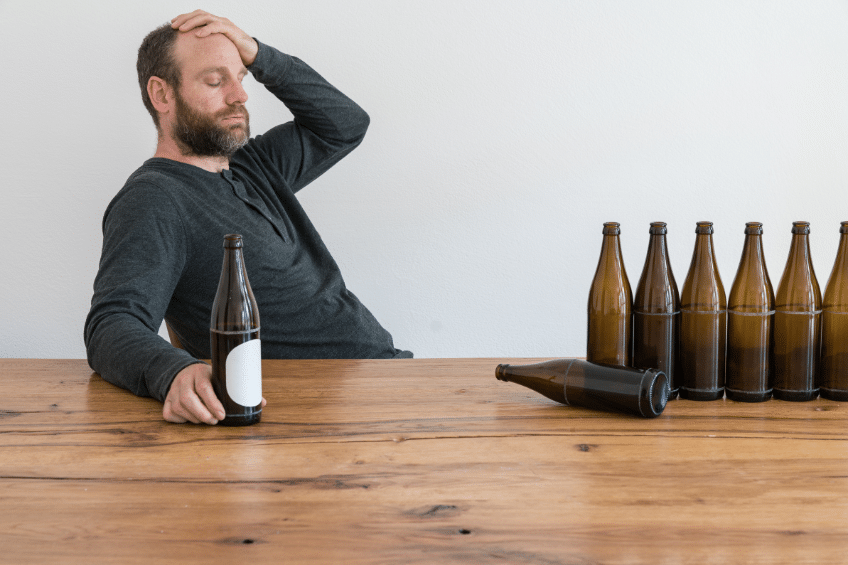By John Salak –
There are lots of reasons to limit the consumption of alcohol to reasonable levels, which various organizations suggest is about two drinks daily for men and one for women. Consistently heavy drinking can lead to impaired functions and injuries while promoting violence, pregnancy issues, cancer, weakened immune systems, cognitive decline and depression, among other issues, according to the Centers for Disease Control and Prevention.
Two separate studies now report that moderate to heavy drinking increases the likelihood of strokes. One research project from Seoul National University in South Korea warns that drinking by people in their 20s and 30s significantly increases their risk of stroke as young adults compared to others who drink little or no alcohol.
“The stroke rate among young adults has been increasing over the last few decades, and stroke in young adults causes death and serious disability,” reported Dr. Eue-Keun Choi, the study’s lead author. “If we could prevent stroke in young adults by reducing alcohol consumption, that could have a substantial impact on the health of individuals and the overall burden of stroke on society.”
The university confirmed the increased risk of strokes from alcohol in young adults by tracking Korean national health records and determining consumption via annual health exam questionnaires. It found that those who were moderate to heavy drinkers—those who drank 105 grams or more weekly—were about 20 percent more likely to have a stroke at a young age than those who drank less.
Choi’s team found that the risk of stroke increased with years of moderate to heavy drinking. The research found that two years of this consumption level led to a 19 percent greater risk of stroke, while three years increased the risk to 22 percent and four years to 23 percent.
“Since more than 90 percent of the burden of stroke overall can be attributed to potentially modifiable risk factors, including alcohol consumption, and since a stroke in young adults severely impacts both the individual and society by limiting their activities during their most productive years, reducing alcohol consumption should be emphasized in young adults with heavy drinking habits as part of any strategy to prevent stroke,” Choi said.
The South Korean research comes on the heels of similar research out of Ireland led by the University of Galway that linked strokes and alcohol. This global study also found moderate to heavy drinking increased the risk of stroke across all ages, although it found no link between low-level drinking and stroke.
The INTERSTROKE research tracked alcohol consumption of almost 26,000 people from 27 countries, about 25 percent of which drink and about two-thirds didn’t consume alcohol.
“While high alcohol intake is known to increase stroke risk, there is some uncertainty about whether low-moderate alcohol intake affects stroke risk and whether the association of alcohol intake with stroke varies by region and population,” explained the study’s co-leader Professor Martin O’Donnell of the University of Galway.
“Stroke is a leading cause of death and disability globally. Each year, approximately 7,500 Irish people have a stroke, and around 2,000 die. An estimated 30,000 people in Ireland are living with disabilities from a stroke. The INTERSTROKE study looked at the key risk factors for stroke in different regions of the world and to inform approaches to population-level prevention,” he added.
The research underscored the impact of moderate to heavy drinking. However, lead researcher Professor Andrew Smyth of the Galway university noted that drinking alone is not the only factor.
“The effects of alcohol intake are complex as they link with socioeconomic factors such as education and many lifestyle factors including smoking, diet and physical activity,” he reported. “The potential impact of binge drinking is important to consider. The adverse risk of having seven drinks one day per week is greater than having one drink each day per week.
The study found that current drinkers had a 14 percent greater risk of having a stroke, while binge drinkers—those having five drinks in one day at least once a month—increased their risk of a stroke by 30 percent. Those who drank heavily—defined as more than 14 drinks a week for females and more than 21 drinks a week for men—were at even greater risk and had a 57 percent greater chance of getting a stroke than others.
Regardless of the work, the lasting equation from these studies is simple: drinking less reduces the risk of having a stroke.













